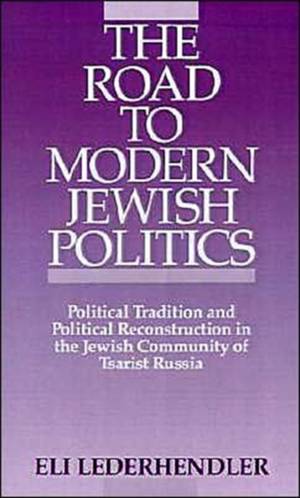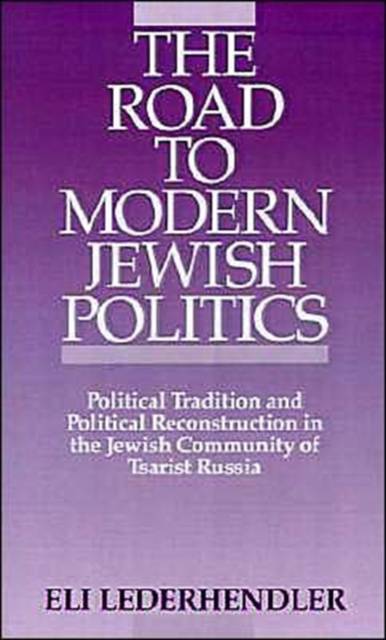
- Afhalen na 1 uur in een winkel met voorraad
- Gratis thuislevering in België vanaf € 30
- Ruim aanbod met 7 miljoen producten
- Afhalen na 1 uur in een winkel met voorraad
- Gratis thuislevering in België vanaf € 30
- Ruim aanbod met 7 miljoen producten
Zoeken
The Road to Modern Jewish Politics
Political Tradition and Political Reconstruction in the Jewish Community of Tsarist Russia
Eli Lederhendler
€ 330,95
+ 661 punten
Omschrijving
It was not until the emergence of the ideologies of Zionism and Socialism at the end of the last century that the Jewish communities of the Diaspora were perceived by historians as having a genuine political life. In the case of the Jews of Russia, the pogroms of 1881 have been regarded as the watershed event which triggered the political awakening of Jewish intellectuals. Here Lederhendler explores previously neglected antecedents to this turning point in the history of the Jewish people in the first scholarly work to examine concretely the transition of a Jewish community from traditional to post-traditional politics.
Specificaties
Betrokkenen
- Auteur(s):
- Uitgeverij:
Inhoud
- Aantal bladzijden:
- 256
- Taal:
- Engels
- Reeks:
Eigenschappen
- Productcode (EAN):
- 9780195058918
- Verschijningsdatum:
- 27/07/1989
- Uitvoering:
- Hardcover
- Formaat:
- Genaaid
- Afmetingen:
- 166 mm x 223 mm
- Gewicht:
- 530 g

Alleen bij Standaard Boekhandel
+ 661 punten op je klantenkaart van Standaard Boekhandel
Beoordelingen
We publiceren alleen reviews die voldoen aan de voorwaarden voor reviews. Bekijk onze voorwaarden voor reviews.











